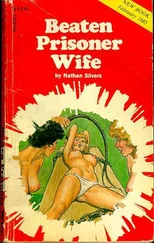“I’ll say,” Chauncey replied, smiling back. “Road signs. I didn’t even think of that.”
Lewis nodded. “I think between these and the ones Ferris took from me we can rig something up so I can power the shelter without needing to gut your base of operations. And if you guys haven’t tossed all the TVs, monitors, and projectors into the garbage, along with any portable hard drives, maybe you can think about other ways to use that power. I’ve got terabytes worth of books, music, TV shows, and movies on portable drives in the shelter that I’d be happy to copy over to anyone who’s got working technology. Assuming the data hasn’t been corrupted.”
Trev was surprised when that news drew a heartfelt cheer from several people in the group, including Tam, who practically jumped up and down. He supposed that the winter hadn’t been all that entertaining for people in Aspen Hill, either.
For her part Catherine smiled warmly. “I think a movie night would lift the town’s spirits. The town hall has a few projectors we used for meetings and presentations. Chauncey, why don’t you take the cousins into town to sort out their solar panels, and while you’re at it you can see about converting the clinic into a theater until we can work out a better solution.”
That drew another cheer.
* * *
Trev and his cousin hurriedly stowed the stuff from their wagons inside the trunks at the feet of the cots they were offered, aside from the meat which they packed in snow in a tarp until they could figure out what to do with it.
Then Lewis packed up his hard drives and a laptop and carried them outside to where Chauncey waited, while Trev carried the bundle of scavenged solar panels and batteries. Even though they’d been useless up in the mountains and would probably have ended up as junk before too long, he still felt better about the fact that the town would be benefitting from them rather than just him and his cousin.
The rest of the delegation from the town had already left hauling the buckets, but they’d probably catch up before too long with their lighter load. Either way Trev was actually more than happy to be walking with Chauncey, since the man was one of those in Aspen Hill he’d most looked forward to getting back in touch with.
After all, the retired teacher had manned the town’s radio all through the winter, and after being incommunicado up in the mountains for months Trev was eager to pump the older man for information. Lewis seemed to have the same idea, and while Chauncey did look amused at their eager questions he was more than happy to fill them in.
Most of the news was bad, which was hardly a surprise. Among other things, Chauncey told him that the main event that had people talking over the last few weeks was that the Gold Bloc had sent troops into Canada, Russia from the east and China from the west. There were rumors they’d done so at the invitation of the Canadian government, and the US’s neighbor to the north certainly wasn’t resisting the invasion.
Invitation or no, one of the first places the Gold Bloc took over was Alaska, taking control of oil production there. That certainly constituted an invasion and a threat to US national security no matter what agreements Canada had made. Reports on what had happened to Alaskan citizens were conflicting, anything from going about their lives in troop occupied cities, to welcoming the foreign presence with open arms thanks to being provided aid they desperately needed, to being herded into refugee or forced labor camps, to being expelled from the state entirely.
Whatever their fate, in response to the event the remnants of the US government, mostly military bases, had announced to the world their findings that Russia was responsible for the Gulf refineries attack. There was some doubt about the authenticity of the claim, but the US had used it as a pretext to declare war on the Gold Bloc nations and warned that if foreign troops didn’t leave Canadian soil within the next month they would utilize their nuclear arsenal.
Chauncey’s personal opinion was that this was just saber rattling, considering the government remnants had also promised to start launching nukes if Canada was invaded in the first place and they hadn’t done that. Either way Trev found it hard to believe that after a winter where tens or even hundreds of millions of American citizens had died there were people out there willing to commit the nation to war against the world’s new superpower.
Then again the US troops stationed up there to protect, or perhaps more accurately secure, Canada’s supply of crude oil couldn’t be ignored. With their critically low reserve of fuel the nation couldn’t afford to bring those troops home, and possibly didn’t intend to either way. Likely one of the first things the Gold Bloc soldiers did on Canadian soil would be to attack those troops and secure the crude oil for themselves, at which point thousands or even tens of thousands of US soldiers would die. The government had to do something to prevent that, and this was the only card they had.
Unfortunately the rest of the world, particularly the Gold Bloc, expected the US to fold. Especially since Russia was offering fuel to help those troops get home to their families, as well as limited aid to the country in its current crisis. Nobody expected the government to pass up that kind of deal.
Trev certainly hoped they wouldn’t. There’d been enough chaos and death without adding war on top of it, and for the US holding Canada’s oil in a death grip when there was no hope of the country returning to sustainability in the near future, and perhaps not for decades, was foolish if not suicidal.
Lewis had another perspective, if not a pleasant one. “I have my doubts about whether anything the US does will ultimately change things,” he said grimly. “We’re struggling just to survive, with rebuilding a long way away and any sort of coordinated military presence even more distant. The Gold Bloc could’ve made deals for Canadian oil without invading Canada at all, which means if they were invited in then those troops aren’t meant to stay on Canadian soil.”
A trickle of ice spread down Trev’s spine. “You think they’re planning to invade the US once Canada’s secured?”
“They might not even wait that long.” Lewis shook his head. “Think about it. Most occupations are difficult because even after you’ve dealt with the occupied country’s military you still have to deal with resistance among the civilian population and the effort and expense of moving troops and keeping them supplied.”
“Well I’d say our military is very nearly dealt with,” Chauncey said grimly.
“Which gets us to occupation. The US’s greatest defense has always been that trying to occupy any of our territory would be a logistical nightmare for anyone on another continent, because taking supply lines across either the Atlantic or the Pacific would increase the time, expense, and difficulty to coordinate by orders of magnitude. And then once they got on US soil they’d be facing a population of hundreds of millions of people with a reputation as being one of the most well armed populaces in the world.
The only way they could hope to manage it is with the cooperation of either Canada or Mexico to use as a point to launch the invasion. Up until now the US would’ve immediately intervened if enemy troops had tried something like that, and we’d have shorter supply lines to our neighbors than an enemy preparing an invasion from their soil. It would be easier for us to defend than for them to attack.”
Trev nodded slowly, feeling sick. “So now that our military is out of the picture and hundreds of millions of US citizens have died, and the rest are stranded wherever they are with no fuel to mount any sort of resistance, an enemy could just drive right in and take our nation piece by piece.”
Читать дальше












